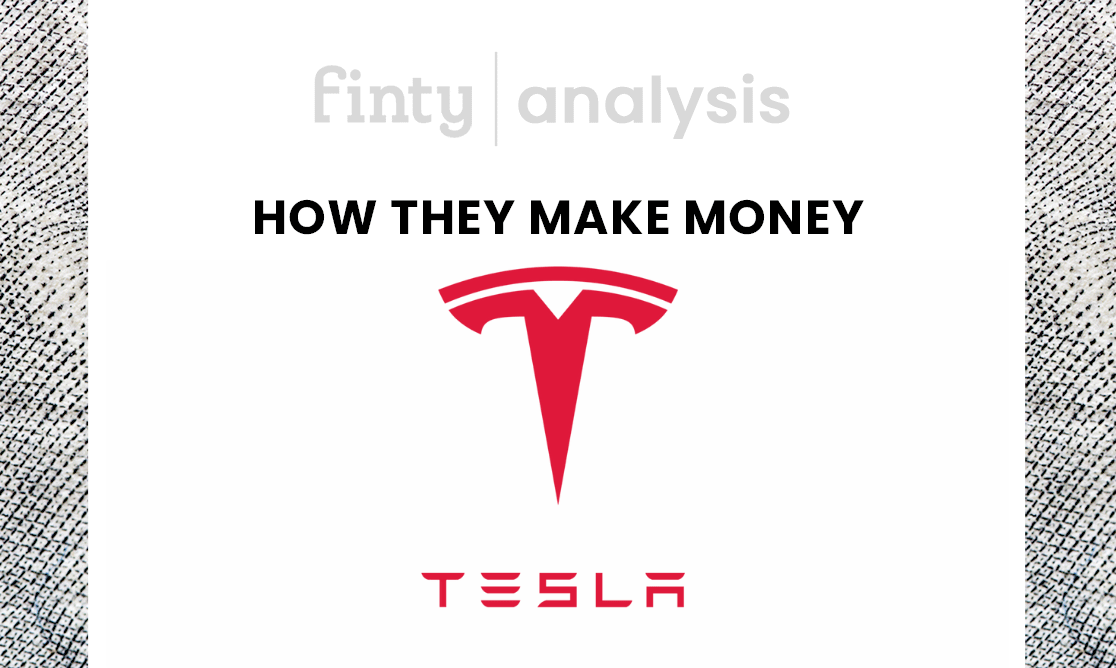- Tesla is the leading brand in Electric Vehicles (EVs), with operations across the globe.
- Tesla is one of the biggest high-growth names in the US stock market, with its CEO, Elon Musk being one of the richest men in the world.
- Tesla makes money by building a diverse business model accounting for EV sales, servicing and innovative green energy solutions plus holding some of its balance sheet in Bitcoin.
Martin Eberhard and Marc Tarpenning founded Tesla in 2003, naming it after Nikola Tesla, an electrical engineer and inventor of the infamous "Tesla Coil." The company started with the goal of producing an EV offering the consumer market a stylish vehicle with plenty of performance and several tech integrations.
Elon Musk joined Tesla in 2008 as its CEO and head of the board of directors. The company was listed on the Nasdaq stock exchange in June 2010 under the ticker $TSLA. Its IPO issued 13.3 million shares of common stock for $17.00 per share.
What does Tesla do?
Tesla is a green energy company focusing on developing and marketing its EV range. The company released the Roadster model in 2008 but quickly withdrew it from the market. The company experienced huge success with the "Model 3" launch in 2017.
However, while the brand amassed a huge cult-like following, Tesla continues to experience problems with its products and manufacturing capacity. The company manufactures at plants across the globe, including the recent development of its "Gigafactory" in China.
How does Tesla work?
Tesla operates a diverse business model, with its auto division being the company's flagship. However, it also produces a range of clean energy products. The Tesla "Powerwall" is an example of Tesla tech used to power homes and businesses.
The company's biggest growth market is China, and it continues to expand globally. The S&P500 welcomed Tesla to its rankings in December 2020. The onset of the pandemic saw retail investors pile into stocks, particularly Tesla, sending its market cap through the roof.
How Tesla makes money
Tesla makes money by selling EVs, offering EV servicing, and selling innovative clean energy solutions. It also earns revenues from collecting deposits on future EVs and energy products in the design pipeline. Plus there's the investment in Bitcoin.
Let's look at the Tesla business model in detail.
Car sales
Tesla manufactures several EV models, with its flagship being the Model S. The sales and marketing strategy has been direct sales to consumer, rather than the prevailing go to market approach of selling via dealers.
Servicing
Tesla offers servicing facilities for its EVs and its energy solutions. Being it is the only recommended servicing agent, Tesla owners can only service their vehicles through approved Tesla servicing centers.
The company also offers servicing and installation for its green energy solutions, like the Powerwall. In 2019, Tesla's servicing revenue grew by 91% to $1.65 billion y-o-y.
Energy solutions
Tesla also produces unique green energy solutions for homes and businesses. It manufactures products like the Powerwall, Powerpack, and its Solar Roof. However, the company stopped producing its Solar Roof due to supplier complications.
Public charging
Tesla charge a fee for the use of its Supercharger Network dotted around the nation and world. It costs about $20-$25 to fully charge an 85kWh Tesla Model S in the US, at a Tesla Supercharger.
Deposits
Tesla takes deposits for its products like the "Cybertruck" and "Roadster," charging Tesla customers for the chance to own the vehicle at a future release date. However, the company has yet to deliver on either of these products.
Carbon credits
Not everyone is aware that a major source of Telsa's revenue, around 20%, comes from receiving carbon credits from various US government clean energy schemes because it is a manufacturer of electric vehicles.
These carbon credits are tradable certificates giving companies the right to emit / pollute a set amount of carbon dioxide into the environment.
Tesla sells around $279-679 million per quarter of its carbon credits to other automakers including Fiat Chrysler and General Motors.
Tesla has flagged that sales of carbon credits will continue to fluctuate and decline over time.
Bitcoin
In early 2021, Tesla bought $1.5 billion worth of Bitcoin when one Bitcoin was worth between $30-$50k range. The car maker moved cash not required for operating liquidity sitting on its balance sheet out of its regular banking accounts into Bitcoin in order to "maximize returns on our cash.”
At the time it caused a big news on Wall Street and crypto because it was seen as a big endorsement of Bitcoin and cryptocurrency more broadly by a massive listed US company. It also signaled that it would accept Bitcoin as a form of payment at some point.
Future growth
New markets and new models. Tesla sees its biggest growth in the big market of China and new models such as the Tesla Cybertruck and Semi Truck.
During the pandemic outbreak in 2022, China closed its Gigafactory in Shanghai. As a result, production and deliveries slowed. However, the closure of the Gigafactory didn't seem to affect Tesla's quarterly earnings report or its stock price.
Elon Musk remains the company's CEO, but controversy caused him to step down from the position of chairman of the board in October 2018 after his infamous tweet claiming he was willing to take the company private at $420 per share.
Competitors
Many other vehicle manufacturers are moving into the EV space, giving Tesla stiff competition.
Newer entrants Rivian, Lucid, and Nio and long standing Ford and General Motors are all trying to take market share away from Tesla.


